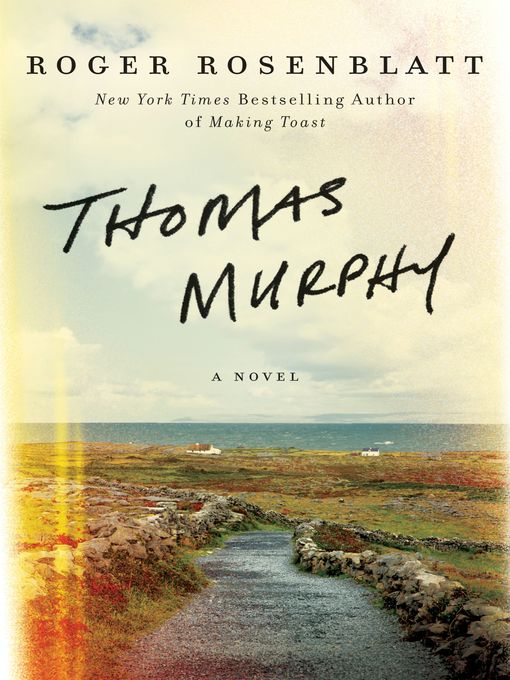
Thomas Murphy
A Novel
کتاب های مرتبط
- اطلاعات
- نقد و بررسی
- دیدگاه کاربران
نقد و بررسی

November 2, 2015
Rosenblatt (Making Toast) tackles memory loss with a fictional portrait of a septuagenarian poet whose “wonderful brain” is “ebbing a bit.” Thomas Murphy jokes, drinks, sings oldies, and wonders what he’ll be doing the rest of his life in a funny, touching narrative that begins and ends with the question, “Have I told you about this?” Born off the Irish coast on Inishmaan, population 160, Murph now resides on Manhattan’s Upper West Side. He teaches writing to the homeless and enjoys being a grandfather, but remains at loose ends following his wife’s death. Daughter Maire drags him to a doctor after he sets off fire alarms when he forgets eggs boiling on the stove. He cannot remember the term smoke detector, or his New York area code. He wisecracks his way through the medical examination, fooling no one. Afterward, a chance encounter at a bar leads Murph to an opportunity for a new beginning: there he finds Sarah, a blind woman, who provides a rare connection—someone he understands and someone who understands him. Murph’s rambling monologue reveals discernment and feeling, as a favorite George Eliot quote puts it, especially in riffs on poetry, regret, cooking, and the upside of forgetting. Smart as a whip, dumb as a post, and frail as pebbles, forgetful Murph proves a memorable hero as he faces his last years as though he won’t crash if he goes full tilt.

November 1, 2015
An elderly poet delivers a chatty, comic monologue on sex, death, life, and getting the girl. Rosenblatt--admired for his essays for Time and PBS Frontline and for his more recent memoirs such as Making Toast (2010)--likes an occasional dip into fiction. His first venture, Lapham Rising (2006), centered on a half-mad misanthrope fighting McMansions on Long Island. His new book features a cranky/lovable widower awaiting the verdict of dementia tests. Like Tom Sawyer imagining his own funeral, Thomas Murphy envisions his own obit mentioning "his heavenly baritone voice and sea-blue eyes" and pegging him as "the celebrated poet, genius, cardsharp, pop singer, piano bar player, raconteur, bon vivant, and all-around good guy." The novel is all character, teetering on the verge of caricature--the Irish-born Murph drinks and sings loudly, usually "What Are You Doing the Rest of Your Life?" His New York liberal bona fides are so airtight that he teaches creative writing to the homeless. He sat down, he tells us, for civil rights at a Woolworth's in the 1960s. Rosenblatt spools out this tale without chapters, just fragments that mimic a skittering mind. (The first and last sentences are "Have I told you about this?") No one else speaks, although the pages are thick with quotations. A plot is barely there, and wheezes with the appearance of a comely young blind woman who might take the old dude to bed--shades of the Sidney Poitier-inflected moralism of "A Patch of Blue." The book is better rattling around in the mind of the old fellow, who conjures a vivid childhood on an island in the Irish Sea and writes drafts here of a couple of decent poems. All the while, readers are subjected to such pointedly "lovable" nonsense as "you never crash if you go full tilt" and a bushel full of puns. Here is Murph, going over his prize acceptance speech in the back of a taxi: "delighting in its wit and flow, its mixing of sincerity and self-effacement, the warming anecdote, the dip into a pun, the soar into high seriousness here and there, a splash of poetry, a flash of skin." A generous assessment of the novel itself. A colorful man nears his demise with a bit o' philosophizing and a song.
COPYRIGHT(2015) Kirkus Reviews, ALL RIGHTS RESERVED.

























دیدگاه کاربران